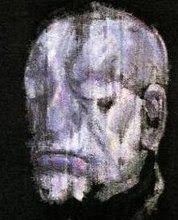If we are to think of the chief difference between Sartre and Guattari as being rooted in the distinction between an ultimately individualistic and group/social conceptions of subjectivity, (with Sartre essentially holding that even a group is ultimately still predicated upon the ternary relations existing between individuals, and Guattari holding that even prior to the formation of any explicit subject group subjectivity is social and pre-personal) the interesting point which is raised is where precisely that leaves Badiou. For him at least the subject does not exist prior to the group, prior indeed to the truth process. Outside of such sequences there is no subject in any meaningful sense, or at least, in any sense which Badiou himself is interested in. If we are to consider this line of thinkers as a gradual withdrawal from an existential-individual conception of the subject, we might place Badiou as lying at the furthest remove from Sartre, arguing in Being and Event that a subject is "any local configuration of a generic procedure from which a truth is supported" (BE p.391) and further "the subject is rare... the generic procedure of a situation being singular every subject is rigorously singular" (BE p.392). The latter point demonstrates how far Badiou's subject is from Guattari's also: There is no need for a process of transversalisation to restore singularity- the subject, if it is to exist at all, is radically singular, situated and effectuated only in response to a specific truth process, at a particular site. One point of investigation for this project might be on how close these notions of singularity are between Guattari and Badiou.
Another problem is clearly how Badiou structures his subject(s). We know they are finite portions of a (potentially at least) infinite truth process, but what of the relation between subjects? A number of related questions: Is there a single subject to each truth, of which individual human beings are merely (and only from the standpoint of the situation) segments of? Does Badiou have anything to tell us about the internal relations within (for example) groups of revolutionaries, or scientists, artists etc? In his transformation of subjectivity into an incredibly rare and specific thing, has he abandoned any interest in the complexities of the social, in a trade off with an elegant hyper-structuralist formalism?


No comments:
Post a Comment